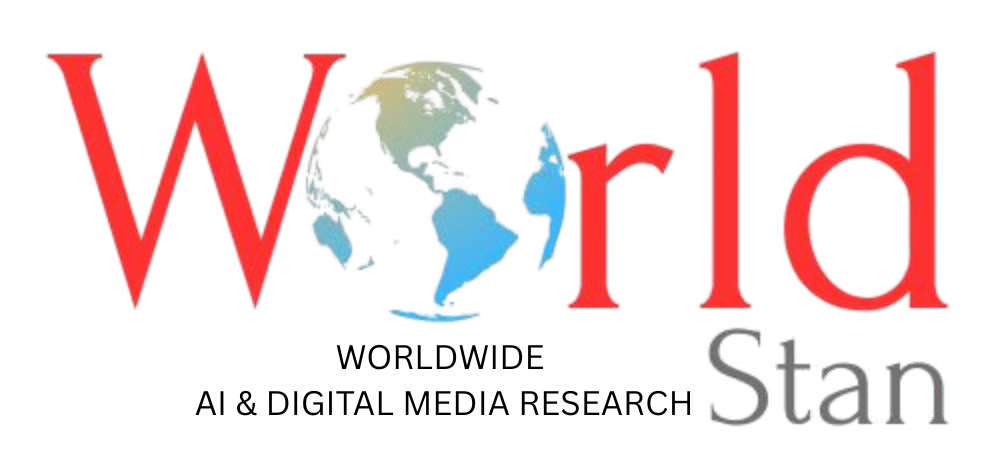- Was WhatsApp founded by Brian Acton and Jan Koum in 2009?
- Has WhatsApp revolutionized the way billions of individuals connect and interact globally?
- What groundbreaking features has WhatsApp introduced since its inception?
- Did Facebook acquire WhatsApp in 2014?
- Has WhatsApp faced challenges throughout its history?
- What initiatives does WhatsApp undertake to empower users and foster connections?
- How many countries has WhatsApp been banned in?
- Does WhatsApp have a user base spanning 180 countries?
- What drives innovation and investment in WhatsApp’s platform?
- How many individuals does WhatsApp have as users?
- Does WhatsApp prioritize user accessibility, privacy, and security?
- What role does platform support play in WhatsApp’s commitment to users?
- What is the significance of WhatsApp’s evolution into a business communication tool?
- Does WhatsApp offer tailored solutions for businesses of all sizes?
- How does WhatsApp empower enterprises to enhance customer engagement?

Introduction to Whatsapp:
Whatsapp platform is renowned, WhatsApp also known as WhatsApp Messenger, stands as a renowned instant messaging (IM) and voice-over-IP (VoIP) service under the ownership of the tech giant Meta. Enabling users to transmit text, voice, and video messages, initiate voice and video calls, and exchange a plethora of content including images, documents, and user locations, WhatsApp serves as a versatile communication platform. Operating primarily on mobile devices, its accessibility extends to computers as well. Sign-up necessitates a cellular mobile telephone number. Whatsapp platform is renowned, In January of 2018, WhatsApp unveiled a dedicated business application known as WhatsApp Business, specifically crafted to seamlessly integrate with the standard WhatsApp client.
WhatsApp, embraced by over 2 billion individuals spanning across 180 nations, serves as a ubiquitous platform facilitating connections with loved ones, unrestricted by time or place. Free of charge, WhatsApp delivers effortless, safeguarded, and dependable messaging and calling services accessible on a global scale, transcending geographical boundaries.

Who Founded WhatsApp:
In 2009, Brian Acton and Jan Koum departed from their roles at Yahoo! and embarked on a journey around the globe together. As finances dwindled, a failed attempt to secure positions at Facebook left them disheartened. However, fueled by determination, they conceived the concept for a groundbreaking communication application, Whatsapp platform is renowned, WhatsApp.
When Launched WhatsApp :
Whatsapp platform is renowned, In January 2009, Jan Koum joined the ranks of numerous iPhone enthusiasts by acquiring one for himself. Within a few months, Koum discerned the immense potential of the recently introduced App Store. Initially envisioning an app enabling users to showcase status updates, Koum and Acton recognized the need for collaborative input.
History:
Founding Years (2009–2014)
WhatsApp emerges onto the scene in February 2009, courtesy of Brian Acton and Jan Koum, both Yahoo! alumni. Their journey begins when Koum acquires an iPhone, sparking the idea for an app tailored for the App Store. Initially conceived as a means to display statuses within a phone’s Contacts menu, the project gains momentum through the recruitment of Igor Solomennikov, a Russian developer sourced by Koum’s friend, Alex Fishman. As they navigate the challenges of early development, including crashing versions and financial strain, Acton’s encouragement and strategic investments from former Yahoo! colleagues propel WhatsApp forward. Whatsapp platform is renowned, With subsequent enhancements like push notifications and tailored messaging components, WhatsApp quickly garners widespread acclaim, setting the stage for its meteoric rise.
Acquisition and Expansion (2014–2015)
The year 2014 marks a pivotal moment for WhatsApp as Facebook, Inc., led by Mark Zuckerberg, announces its acquisition of the platform for a staggering $19 billion. This monumental deal not only solidifies WhatsApp’s position as a powerhouse in the messaging realm but also underscores Facebook’s strategic vision for the future of internet connectivity. Despite initial concerns and disruptions following the acquisition, WhatsApp continues its trajectory of growth, boasting a user base exceeding 600 million by August 2014. With relentless innovation and strategic alliances, WhatsApp cements its status as the premier messaging platform, setting the stage for further evolution and global dominance.
Transition and Innovation (2016–2019)
As WhatsApp navigates the evolving landscape of digital communication, key leadership shifts and strategic decisions shape its trajectory. Co-founder Jan Koum’s departure in April 2018 marks a significant transition, accompanied by the introduction of innovative features and initiatives aimed at enhancing user experience and engagement. From the launch of WhatsApp Business to pivotal partnerships with nonprofits and startups, WhatsApp remains at the forefront of technological innovation, cementing its position as an indispensable tool for billions worldwide.
Adaptation and Resilience (2020-Present)
In the face of unprecedented global challenges, WhatsApp demonstrates resilience and adaptability, leveraging its platform to support vital initiatives such as pandemic response efforts in collaboration with global organizations like the World Health Organization and UNICEF. However, amidst controversy surrounding privacy policies and platform outages, WhatsApp remains steadfast in its commitment to user-centric principles and ongoing innovation. As it continues to evolve and expand its offerings, WhatsApp remains an integral part of the digital landscape, empowering users to connect and communicate with ease.

Platform Support:
Diversified Platform Reach
Whatsapp platform is renowned, WhatsApp’s expansion across various platforms reflects its commitment to accessibility and inclusivity. Whatsapp platform is renowned, From the initial launch on iOS in November 2009 to subsequent inclusions of BlackBerry, Symbian OS, Android OS, and beyond, WhatsApp continually strives to accommodate diverse user preferences and device capabilities.
Evolving Platform Landscape
The journey of WhatsApp’s platform support mirrors the rapid evolution of mobile technology. As the landscape shifts, WhatsApp adapts, introducing support for emerging platforms like Android Wear and WhatsApp Web. These strategic enhancements ensure seamless connectivity and user engagement across an array of devices.
Web Integration and Desktop Accessibility
WhatsApp’s foray into the web realm with WhatsApp Web represents a pivotal moment in its platform history. By bridging the gap between mobile and desktop environments, WhatsApp empowers users with greater flexibility and convenience in their communication endeavors.
Desktop Integration and Cross-Platform Synchronization
The introduction of WhatsApp for Windows and macOS signifies a significant milestone in the platform’s evolution. With support for video and voice calls, alongside synchronization with mobile devices, WhatsApp caters to the diverse needs of its user base, facilitating seamless communication across desktop and mobile environments.
Smartwatch Integration
WhatsApp’s embrace of wearable technology underscores its commitment to innovation and accessibility. By extending support to Android Wear (now Wear OS), WhatsApp ensures that users can stay connected and informed, even on the go.
iPad Limitations and Future Prospects
Despite its widespread availability, WhatsApp’s absence on iPad underscores certain limitations and challenges. While efforts are underway to address this gap, including the release of a beta version, WhatsApp acknowledges the persistent demand for an official iPad client, promising potential advancements in the future.
Encryption:
Ensuring Privacy: End-to-End Encryption Implementation
The collaboration between Open Whisper Systems and WhatsApp in November 2014 heralds a significant milestone in the realm of digital privacy. By integrating the robust encryption protocol from Signal into WhatsApp’s client platforms, users gain enhanced security and confidentiality for their communications. Despite the initial lack of formal announcements, the adoption of end-to-end encryption marks a pivotal step towards safeguarding user data.
Stepping Up Security Measures: Comprehensive Encryption Deployment
The culmination of efforts on April 5, 2016, signifies a comprehensive deployment of end-to-end encryption across all communication channels within WhatsApp. With the assurance of encrypted messages and the option for users to verify keys, WhatsApp solidifies its commitment to privacy and security. The introduction of trust mechanisms further empowers users to actively monitor and safeguard their communications.
Technological Backbone: Understanding the Encryption Protocols
WhatsApp’s adoption of the Signal Protocol underscores the platform’s dedication to leveraging cutting-edge encryption technologies. With messages encrypted using the Signal Protocol and additional security measures in place for calls and client-server communications, WhatsApp establishes a robust technological backbone for ensuring the integrity of user data.
Expanding Security Perimeters: End-to-End Encryption for Backups
The rollout of end-to-end encryption for backups on October 14, 2021, represents a significant expansion of security perimeters within WhatsApp. By allowing users to encrypt backups with either a password or a 64-digit encryption key, WhatsApp empowers individuals to safeguard their chat history with an added layer of protection.
Navigating Data Storage: Balancing Security and Accessibility
Whatsapp platform is renowned, WhatsApp’s approach to data storage reflects a delicate balance between security and accessibility. While encrypted copies of chat messages can be stored on SD cards, the presence of unencrypted data in the SQLite database file underscores ongoing efforts to optimize data security protocols while ensuring seamless user experience.
Bans:
China:
Digital Boundaries and Restrictions
Meta’s WhatsApp faces significant challenges in China, where its parent company’s flagship service, Facebook, has been blocked since 2009. Reports in September 2017 indicated a complete blockage of WhatsApp in China, highlighting the complexities of operating within the country’s tightly controlled digital environment.
Iran:
Political Tensions and Access Limitations
Iran’s stance on WhatsApp reflects broader geopolitical tensions. Despite initial efforts to block the service due to perceived ties to American interests, subsequent orders to halt filtering suggest ongoing negotiations and complexities surrounding digital freedoms in the country.
Turkey:
Security Concerns and Temporal Bans
The temporary ban on WhatsApp in Turkey following the assassination of the Russian ambassador underscores the intersection of national security interests and digital communication platforms. Such measures highlight the government’s approach to maintaining stability amidst turbulent geopolitical events.
Brazil:
Legal Battles and Service Interruptions
Brazil’s tumultuous relationship with WhatsApp is characterized by legal battles and intermittent service interruptions. Instances of arrests and temporary bans underscore the challenges posed by regulatory scrutiny and demands for user data transparency.
Global Impact:
Social Media Taxation and Control
Uganda’s implementation of taxes on social media usage and the subsequent ban on WhatsApp highlights the broader trend of governments using digital platforms as revenue sources and tools for social control, raising concerns about accessibility and freedom of expression.
Tech Hegemony and National Interests:
UAE’s Policy Landscape
The United Arab Emirates’ ban on WhatsApp video chat and VoIP applications reflects concerns about protecting domestic telecom interests and controlling digital communication channels. The introduction of locally developed alternatives underscores the tension between national sovereignty and global tech dominance.
Censorship Amidst Political Unrest:
Cuba’s Digital Clampdown
Cuba’s blockage of WhatsApp amidst anti-government protests exemplifies the use of digital censorship as a tool to suppress dissent and control the flow of information during periods of political unrest.
Data Sovereignty and Security Concerns:
Switzerland’s Encryption Dilemma
Switzerland’s ban on WhatsApp and other non-Swiss encrypted messaging services within the army highlights the tension between data sovereignty and concerns about potential foreign surveillance. The recommendation of locally based alternatives underscores efforts to mitigate security risks and protect sensitive information.
Election Interference and Information Control:
Zambia’s Digital Clampdown
Zambia’s blocking of WhatsApp during elections raises questions about the manipulation of digital platforms for political purposes. Despite official silence, reports of reduced traffic on blocked services suggest efforts to control the flow of information during critical periods.
Regulatory Battles and Third-Party Client Restrictions
The crackdown on third-party WhatsApp clients underscores the platform’s efforts to protect its intellectual property and maintain control over user experiences. Legal battles and cease-and-desist orders highlight the complexities of navigating regulatory landscapes and protecting user data integrity.
Whatsapp business:
Business Expansion: WhatsApp’s Corporate Offerings
In January 2018, WhatsApp diversified its portfolio with the introduction of two distinct business-oriented apps, each catering to specific segments of the market:
WhatsApp Business App: Empowering Small Enterprises
Targeting small companies, Whatsapp platform is renowned, WhatsApp Business App provides a streamlined platform for businesses to engage with customers effectively. Through features tailored to meet the needs of smaller enterprises, such as automated responses and business profiles, WhatsApp empowers entrepreneurs to enhance their customer service and communication strategies.
Enterprise Solution: Serving Global Corporations
For larger corporations with expansive global customer bases, WhatsApp unveiled the Enterprise Solution. Designed to facilitate seamless customer service and conversational commerce, this offering caters to industries ranging from airlines to e-commerce giants and banks. With capabilities for live agent interactions and chatbot integration, WhatsApp enables enterprises to scale their customer engagement efforts effectively.
Monetization Strategy: WhatsApp Business API Pricing Tiers
In a strategic move announced by Facebook in October 2020, WhatsApp introduced pricing tiers for services offered through the WhatsApp Business API. These tiers, charged on a per-message basis, signal a shift towards monetizing corporate interactions on the platform, providing businesses with enhanced functionalities while ensuring sustainable revenue streams for WhatsApp.
Global Reach: WhatsApp’s User Landscape
WhatsApp’s meteoric rise is underscored by staggering user statistics, reflecting its ubiquitous presence and global impact:
Milestones of Messaging Volume
From handling ten billion messages per day in August 2012 to processing a staggering 27 billion messages daily by June 2013, WhatsApp’s exponential growth has redefined the landscape of digital communication. With over 2 billion users globally as of February 2020, WhatsApp continues to dominate the messaging sphere, solidifying its status as a global communication powerhouse.
Market Dominance and Regional Significance
India emerges as WhatsApp’s largest market, boasting a substantial user base and unparalleled market penetration. With milestones such as reaching 200 million monthly active users in February 2017, WhatsApp’s stronghold in India underscores its significance in key global markets.
Navigating Competition: WhatsApp’s Rivals and Innovations While WhatsApp faces competition from a myriad of messaging services, including iMessage, WeChat, Telegram, and Signal, its innovative strategies and adaptability set it apart. From drawing inspiration from competing services to addressing evolving user needs, WhatsApp’s ability to innovate and evolve ensures its continued relevance amidst a crowded landscape of messaging platforms.
Conclusion:
In conclusion, WhatsApp stands as an iconic symbol of modern communication, revolutionizing the way billions of individuals across the globe connect and interact. Founded by Brian Acton and Jan Koum in 2009, WhatsApp’s journey from humble beginnings to global dominance is a testament to innovation, resilience, and unwavering commitment to user satisfaction.
Since its inception, WhatsApp has continually evolved, introducing ground breaking features such as end-to-end encryption, voice and video calls, and business-oriented solutions like WhatsApp Business. Its acquisition by Facebook in 2014 marked a significant milestone, propelling WhatsApp to new heights of success and expansion.
Throughout its history, Whatsapp platform is renowned, WhatsApp has navigated challenges with adaptability and innovation, maintaining its position as a leader in the messaging landscape. From strategic partnerships to initiatives supporting global causes, WhatsApp remains dedicated to empowering users and fostering meaningful connections.
As we look towards the future, WhatsApp’s role in shaping the digital communication landscape is undeniable. With a user base spanning 180 countries and over 2 billion individuals, WhatsApp continues to redefine the way we communicate, bridging distances and bringing people closer together in an increasingly interconnected world.
WhatsApp’s journey through platform support and encryption underscores its unwavering commitment to user accessibility, privacy, and security. From expanding its reach across various platforms to implementing robust encryption protocols, WhatsApp prioritizes user experience while ensuring the confidentiality and integrity of user communications.
In essence, WhatsApp’s evolution into a multifaceted business communication tool heralds a new era of corporate engagement and connectivity. With tailored solutions for businesses of all sizes, WhatsApp empowers enterprises to enhance customer engagement and scalability, driving innovation and investment in its platform. As WhatsApp continues to innovate and expand its offerings, it remains a cornerstone of modern communication, facilitating seamless connections and empowering users to thrive in the digital age.

Prof. Mian Waqar Ahmad
Prof. Mian Waqar Ahmad, a dynamic force straddling the realms of academia and digital media. As a distinguished Lecturer in Information Sciences, he imparts knowledge within the academic sphere, igniting the minds of his students. Beyond the classroom, Prof. Mian Waqar Ahmad dons the hat of a seasoned blogger on Worldstan.com, where his insightful posts delve into the intricacies of information sciences. His digital footprint extends even further as a YouTuber, leveraging the platform to share his expertise and make complex concepts accessible to a global audience. Prof. Mian Waqar Ahmad’s journey embodies the fusion of traditional education and contemporary digital outreach, leaving an indelible mark on the evolving landscape of information sciences. Explore his world at Worldstan.com and witness the convergence of academia and the digital frontier.

